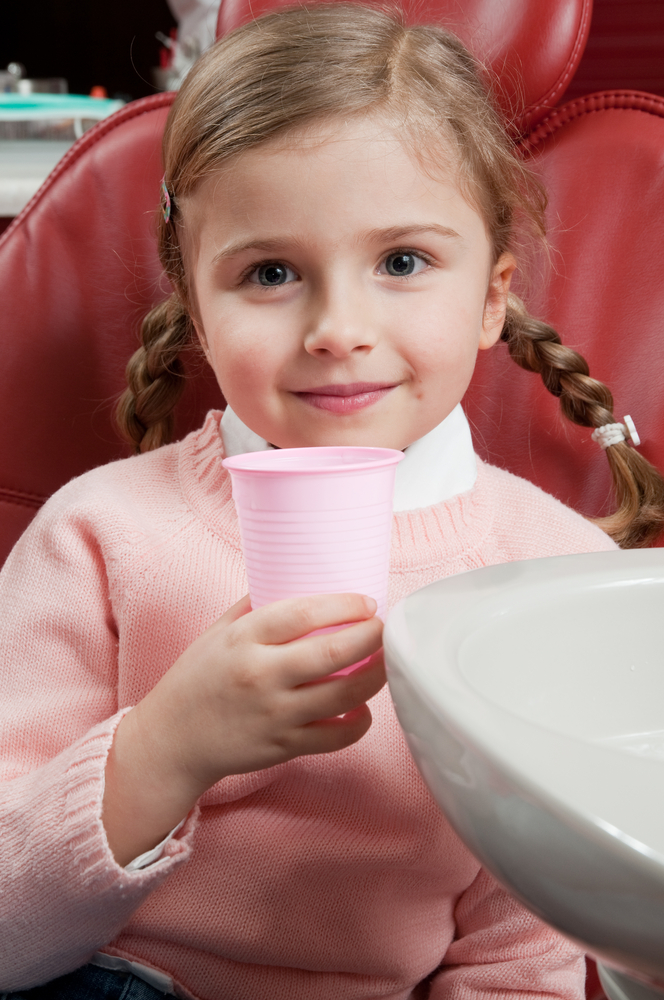
2. Crowns
Teeth that have larger cavities involving multiple surfaces and teeth with enamel defects may require a crown for optimal treatment. We use three different types of crowns depending on the location of the tooth in the mouth, the condition of the tooth, and parental preference.
Front teeth requiring a crown are treated with either a crown made of composite filling material (strip crown) or a zirconia crown.
Back teeth are treated with a stainless steel crown or a zirconia crown. While a zirconia crown is tooth colored, it is not always the best treatment; sometimes a stainless steel crown will be recommended over a zirconia crown. Dr. Walker will recommend the option that is best suited to your child’s tooth. Please feel free to talk to the doctor or staff for further information if your child requires a crown.
3. Pulp Therapy
Pulp therapy is also called “children’s root canal,” “nerve treatment,” “pulpotomy,” or “pulpectomy.” The pulp of a tooth is the inner core that contains nerves, blood vessels, and connective tissue. When a child has a severe cavity or a tooth injury, pulp therapy can be used to remove the damaged pulp and seal the tooth to prevent further problems. A pulpotomy removes the diseased pulp within the crown (top) of the tooth and uses an agent to prevent bacterial growth and calm the nerve tissue. The tooth is then capped with a crown. A pulpectomy is a more extensive treatment that removes all the pulp tissue from both the crown and the root. The canals are then cleansed and filled before being capped.
4. Nitrous Oxide
Nitrous oxide (happy air or laughing gas) is sometimes used in our office to help relax the patient and provide further comfort.
5. Sedation
On rare occasions, oral sedation is required to provide a safe, comfortable dental treatment for children with special needs or children with a high level of anxiety.
Sedation or general anesthesia is sometimes used to provide care for patients who are extremely young and do not understand how to cope with restorative treatment in a cooperative fashion. Dr. Walker is trained in sedation and follows safety guidelines established by the American Academy of Pediatric Dentistry.
